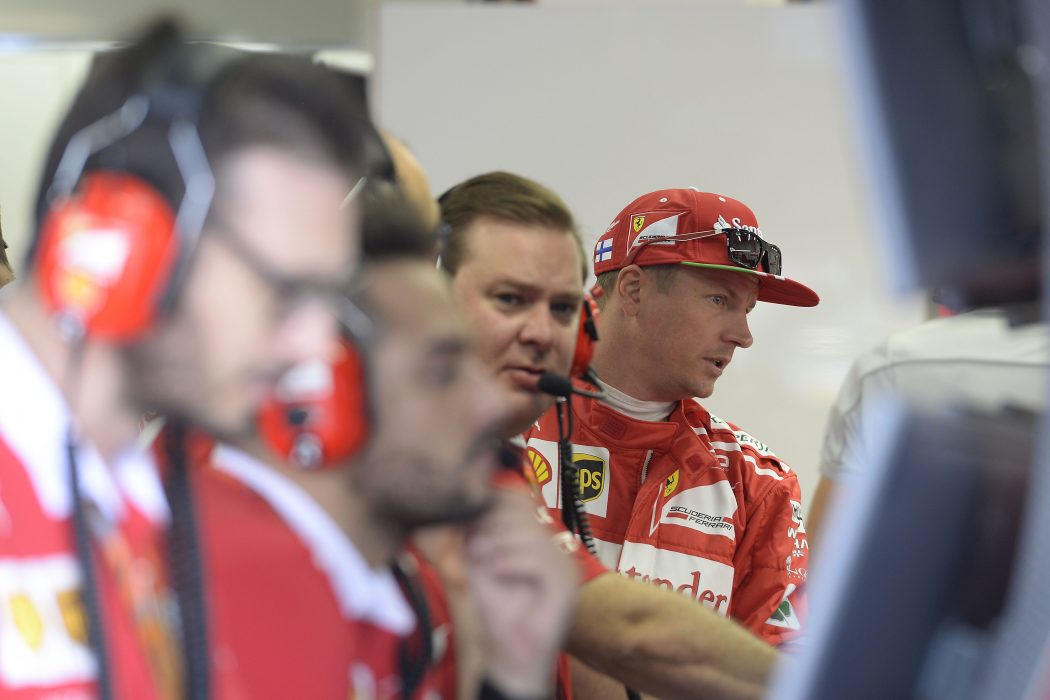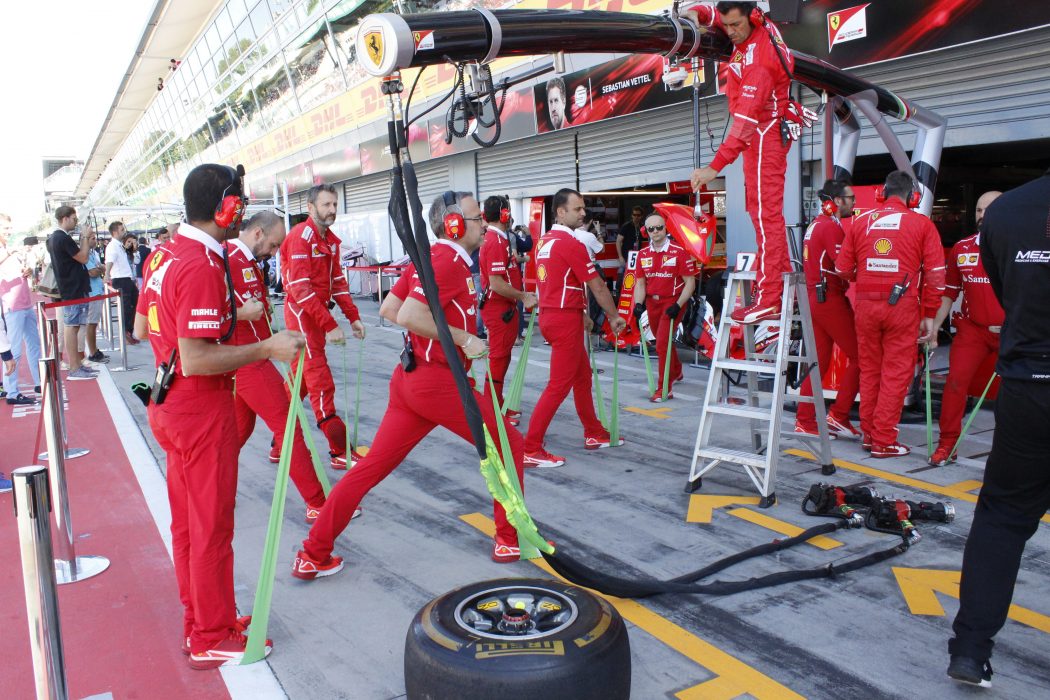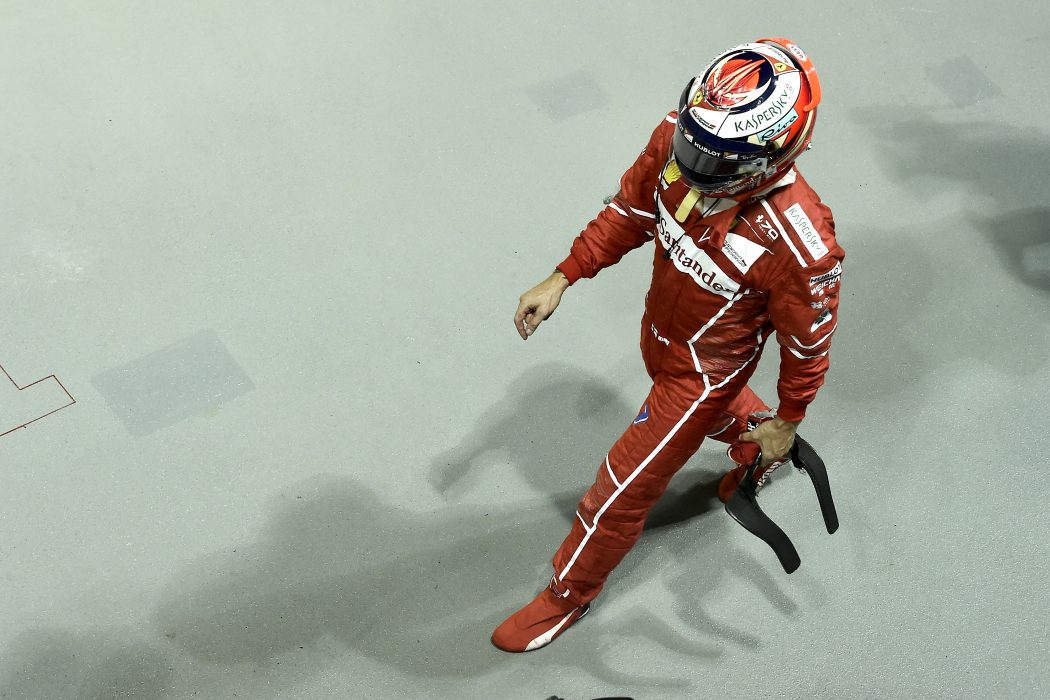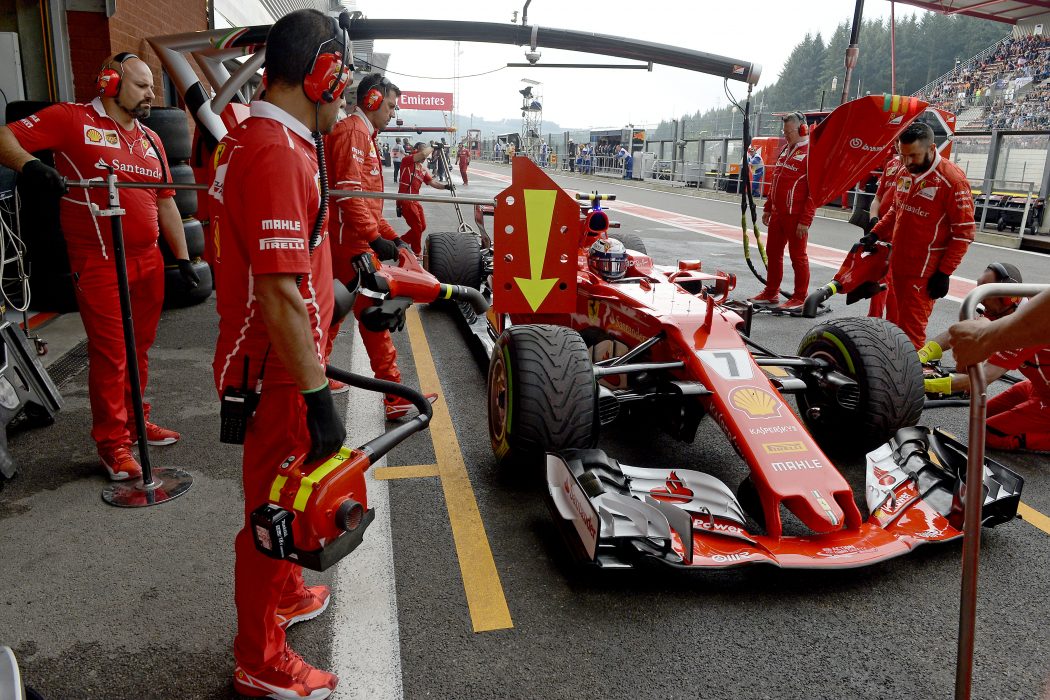Recently Formula 1’s new management has revealed their proposals for the future of the sport, including a new engine specification from 2021 onwards. Several of the current and potential future manufacturers have voiced their opinions. Not surprisingly Ferrari has been very vocal, and have – once again – threatened to leave the sport entirely.
Click here to subscribe to our print edition!
In a conference call with analysts, the Chairman and CEO of Ferrari Sergio Marchionne said he was unimpressed with some of the changes that Liberty is proposing. Marchionne apparently said that walking away from Formula 1 would be a good thing for Ferrari’s shareholders. “It would be totally beneficial to the P&L”, he said. “We would be celebrating here until the cows come home.”
This isn’t the first time Ferrari has threatened to leave the sport, in fact, it’s become something of a regular cycle that Formula 1 finds itself in. Almost anytime changes are proposed in the sport that wasn’t Ferrari’s own, they threaten to quit.
IPO and stock market success
It’s Marchionne’s comments about the investors rejoicing at not having to pay to compete in F1 that that doesn’t stack up though and for several reasons…
When listing on the New York Stock Exchange (NYSE) in October 2015, the IPO documents referenced Formula 1 166 times and said that “Ferrari focus our marketing and promotion efforts in the investments we make in our racing activities, in particular, Scuderia Ferrari’s participation in the Formula 1 World Championship… Participation in the Formula 1 world championship is the core element of our marketing effort”.
This isn’t the first time Ferrari has threatened to leave the sport, in fact, it’s become something of a regular cycle that Formula 1 finds itself in.
As if to cement the brand’s association with motorsport and Formula 1, Marchionne has said: “the sport has been part of our DNA since the day we were born. It’s not as though we can define ourselves differently”. The company even listed under the ticker RACE.
Ferrari’s racing heritage as the “oldest and most successful team in the history of Formula 1” is stated as one the company’s core competitive strengths. The (cost) effectiveness of building the Ferrari brand through the sport is one of the key reasons many will have invested in Ferrari’s stock.
The net cost of running a Formula 1 team
As we saw recently with the financial results of both Mercedes-Benz and Red Bull, the net cost of competing in Formula 1 (for the big three teams at least) isn’t much in comparison to the returns they are seeing.
Toto Wolff is quoted as saying that the net cost to Daimler of competing in Formula 1 is around 10% of revenue, therefore believed to be around $38 million per year. During their involvement in the sport, Mercedes has been transformed as a company; with a revitalised brand and product range, the Mercedes brand value has doubled (from $23.8bn to $47.8bn according to Interbrand), making Mercedes the 9th most valuable brand in the world. The average Mercedes-Benz buyer is approximately 10 years younger (than before Mercedes’ Formula 1 involvement), and the company has seen record passenger car sales year-on-year for the last 6 years.
Red Bull’s net investment in their Formula 1 team is also small when taking into account the income and results in it’s delivered for the company. The energy drinks company last year invested around $40 million on their racing team, which is actually the highest it’s been for some time (investment was as low as $10m in 2013!). Having signed a new title sponsor (Aston Martin) for next season, Red Bull’s direct investment in Formula 1 should be expected to drop once again.
These two teams currently see large percentage income from Formula 1 in prize money and bonuses, but none compare to Ferrari’s preferential treatment. According to information revealed by Autosport, Ferrari’s 2017 total income from Formula One Management / Formula One Group is $180m – that’s $9m more than Mercedes, despite finishing two places behind them in the championship, and $19m more than Red Bull who also finished ahead of them.
Ferrari also benefits from substantial sponsorship agreements with global companies that want to associate and leverage Ferrari’s brand and passionate fan base. In 2015 Ferrari’s Formula 1 income was boosted in the region of $125m from sponsorship and licensing agreements. They also rent Formula 1 engines, gearboxes and components to other teams including Sauber, Toro Rosso and Haas.
Red Bull’s net investment in their Formula 1 team is also small when taking into account the income and results in it’s delivered for the company.
With over $340m in income, you can see how the net cost of Formula 1 competition isn’t as big as you might expect. This sport provides – as Ferrari themselves claim – “a strong marketing advantage in the luxury performance car market”.
“[Ferrari] believe that competitive success in Formula 1 racing both promotes our brand (the prestige, identity, and appeal) and excites passion in our employees, clients and other Ferrari enthusiasts”, but they do see other benefits, besides those of brand affinity and passion, such as technological innovation.
The Formula 1 team is key to Ferrari’s R&D, with many technologies developed in the sport filtering through to their road vehicles, as well as Formula 1 processes being adopted to speed up the development cycle of new road vehicles. Indeed, some of Ferrari’s remaining spend on Formula 1 is “considered fundamental to the development of the sports and streetcar models and prototypes”, further suggesting Formula 1 offers cost efficiencies, if not outright savings.
Alternatives?
It’s fairly clear to see that motorsport and Formula 1 is central to Ferrari’s business model, but should Ferrari continue with the threat to leave the sport, what are the alternatives?
Traditional marketing: taking away the fact Ferrari’s core marketing activity has, and likely always will be motor racing, traditional marketing doesn’t provide an effective alternative for the investment. Again in Ferrari’s own words, the IPO documents state: “Formula 1 Racing allows us to promote and market our brand and technology to a global audience without resorting to traditional advertising activities, therefore preserving the aura of exclusivity around our brand and limiting the marketing costs that we, as a company operating in the luxury space, would otherwise incur.” If Ferrari state in their IPO documents that Formula 1 is much more cost-effective than traditional marketing, then why would leaving the sport be more beneficial to the P&L?
Entering another Championship / Series: Ferrari also has a long history at Le Mans, so that may be considered as an alternative. But competing in another series like Le Mans won’t deliver the ROI for them either. Porsche and Audi both left WEC and Le Mans because they’re spending Formula 1 level of money, but for only a fraction of the media or consumer attention, and without any real income (as there’s no prize money) to offset their spend.
Establishing their own Championship: Establishing their own championship isn’t feasible for many reasons. Max Mosley made efforts previously to ensure that was pretty much impossible, particular with respect to FIA sanctioning. But back to the central theme of cost and Ferrari’s P&L, if Ferrari thinks the cost of competing in Formula 1 is too much, what do they think the capital expenditure of establishing a rival series will be?!
Ferrari also isn’t liked by much of the Formula 1 media at the moment, as the media feel ignored, badly treated or bullied.
Formula 1 is a global powerhouse with 21 amazing circuit facilities, 115 global broadcast partners covering 200 markets, not to mention 400 million unique television viewers around the world, with many more following the sport via other means. All of these contribute vast sums of money and promotion to make it what it is, the largest annual global sport.
A Ferrari championship may gain some traction, but it wouldn’t have the heritage, or provide the same cache; Ferrari winning the Ferrari Prototype Championship – essentially beating yourself – hardly builds the global image they’re looking to foster. By leaving Formula 1, Ferrari could also no longer authentically claim to be the “oldest and most successful team in the history of the sport”. In addition, Ferrari are an automotive brand and race team, they don’t have the experience, personnel or bandwidth to go off and create a rival series. Quite simply, establishing a rival series doesn’t make sense economically, which rides against a key part of the argument and threat.
Summary
Formula 1 provides the most effective (including cost-effective) platform to promote the brand globally. If Ferrari left the sport to pursue any of the costlier and riskier options above, I’m certain shareholders won’t be “celebrating until the cows come home”, they’ll likely offload stock at Formula 1 speed.
I’m certain that this is a negotiating tactic; to maintain some benefit and improve Ferrari’s chance of success as – to quote their IPO one more time – “a sustained period without racing success could detract from the Ferrari brand and, as a result, potential clients’ enthusiasm for the Ferrari brand and their perception of our cars, which could have an adverse effect on our business, results of operations and financial condition.”
I can’t help but think though, that Ferrari should have made a more sustained effort to build support amongst fans and media in the lead up to this. There’s a strong feeling amongst “modern” fans, that they want to see a level playing field and more competition – the reaction to Ferrari’s latest threat wasn’t exactly positive, ranging on social media from “oh, not again!” to “just get lost then!” Ferrari also isn’t liked by much of the Formula 1 media at the moment, as the media feel ignored, badly treated or bullied. Ferrari might have considered this factor, as having the media onside would certainly help their efforts!









Related Articles